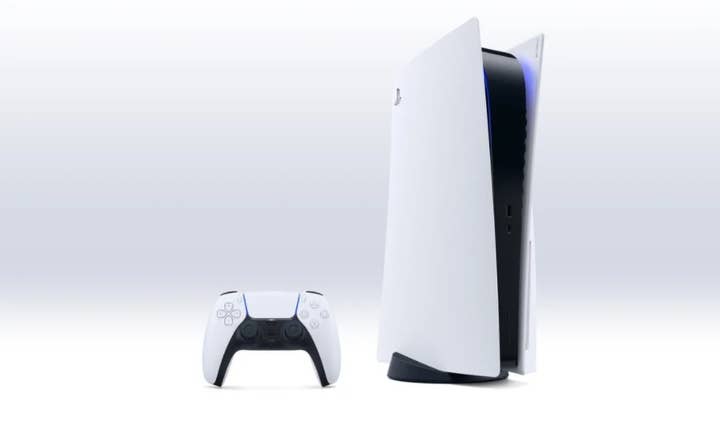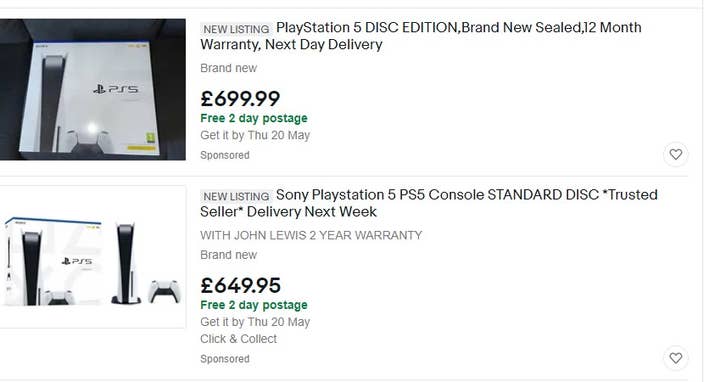What can we do to stop the PS5 and Xbox scalpers?
The situation is exaggerated, but there are still problems to solve
The demand for PlayStation 5 and Xbox Series S/X is sky high, with both Sony and Microsoft's machines going out of stock the moment they come in.
As with anything that has limited supply and high demand, this has resulted in a number of devices being bought up and sold for inflated prices on auction sites. Last week, auction site StockX reported that 130,000 PS5s have been sold via its website.
The situation is grabbing media headlines, so we spoke to games retailers, trade bodies and platform holders -- both on and off the record -- to get an understanding of the extent of the scalping problem.

What's causing the problem?
The root of the issue is that there just isn't enough stock of PS5 or Xbox Series X/S. Although Sony has managed to deliver a strong number of shipments compared with previous console launches, it still isn't enough. Microsoft, too, have struggled to meet demand. COVID restrictions, a global semi-conductor shortage and a ship blocking the Suez Canal have all conspired against the console makers.
COVID-19 has also meant that retailers are dependent on selling online, and this means that organised scalping groups can build bots to jump to the front of the virtual queue and purchase a significant number of units while normal consumers are busy refreshing the page. Scalping took place in the physical space, too, but it was a lot more intensive for organised groups.
How bad is it?
Scalpers and auction sites have been quick to promote their success in obtaining consoles. This is a PR opportunity for them, and they've been quick to tell everyone about it. That, combined with frustrated consumers eager for a new PlayStation or Xbox, have led some to believe scalping is responsible for the majority of new console sales.
That's an exaggeration.
In the UK, based on an analysis of major auction sites, upwards of 5% of PS5 consoles appear to have been resold. This isn't an exact science. The data factors in re-listings and re-selling of PS5s, so they may be duplicate sales tracked here. There are also numerous ways to sell these products away from the major re-selling sites.
Furthermore, the US seems to have a more severe scalping problem than the UK and Europe, based on StockX's sales figure alone.
But even so, the majority of consoles are not ending up on eBay and its rivals. Sales of PS5 games like Spider-Man: Miles Morales, which are presumably not scalped, are also seeing strong uplift every time new consoles are released. So these machines are reaching the hands of consumers.
Nevertheless, even single-digit percentages of millions of consoles is a lot of consoles.
Is it really a problem?
Frustrated and disappointed fans is not something either platform holder is happy about. Xbox chief Phil Spencer has even gone on record to say that the pre-order mechanism needs to change to prevent these situations in the future.
The big challenge is around consumer rights. UKIE in the UK has created guidance for consumers who are buying consoles from untrusted sources. Although some auction sites offer some protection, there is always a risk when buying from eBay. And things like the right to repair, refund and return are lost.
As a result, if there's a fault with their new PlayStation or Xbox, consumers can't simply return them to GameStop or Amazon. They'll have to instead go through Sony and Microsoft's customer service.
What are retailers doing about it?
It's fair to say that some stores were caught off guard during the pre-order stage of PS5 and Xbox Series S/X. Yet since then they've become more vigilant. The days of shops pre-announcing when stock is coming in has faded, as this has allowed scalpers to get organised.
Some smaller stores tell us that they've taken to manually checking addresses to screen out multiple orders. The larger stores tell us that they have introduced 'strong measures' to ensure its '1 per customer' promise is maintained. UK retailer GAME says it has its own checking system in place, and has cancelled orders and put them back on sale.
There are more extreme measures available to stores, but they do have downsides. Currys has been playing around with pricing, with higher upfront costs followed by a discount voucher to confuse scalper bots. One possible option is a lottery system, where players enter for a chance to pre-order a console. Although this may deter scalpers, such a system does mean casual fans are just as likely to get a new device as more hardcore users, so it's not an ideal solution.
What are platform holders doing about it?
By the time something comes into law, it's likely we will have free supply of both consoles
Ultimately, the best thing Xbox and PlayStation can do is get as much stock out as quickly as possible (which is easier said than done).
Xbox has openly discussed the idea of developing an alternative system where gamers can register for a console and know when they might expect to receive one. One way that this has manifested itself is with the Console Purchase Pilot, a new programme that's running for US Xbox Insider members. The firm says a small group of Insider members can register for a new device and eventually purchase one through the Xbox One console. It's seen as a way for the most dedicated Xbox fans to receive a device, without having to resort to scalpers.
What about Government?
Buying something at one price and selling at a higher price is not only legal, but is one of the fundamental principles of capitalism.
One MP in the UK proposed a bill to make console scalping illegal. "We've proposed that a legislative process be brought forward to ensure that consumers can purchase gaming consoles and computer components at no more than the manufacturers' recommended price, and that resale of goods purchased by automated bots be made illegal," said MP Douglas Chapman.
This has some precedent, with ticket scalping being made illegal in the UK in 2018. However, this isn't a like-for-like situation. Tickets to concerts and sporting events are limited by nature, whereas the situation with PlayStation and Xbox is temporary.
Legislation can take years and it is not guaranteed to succeed. By the time something comes into law, it's likely we will have free supply of both consoles.
So what's the solution?
Scalping will likely continue in the short-term, with console shortages expected to last all year. It may peak again at Christmas around the expected launch of a few big games, including Halo: Infinite and Horizon: Frozen West.
However, as more stock arrives and physical retail becomes an option once again, scalpers will find the effort and reward ratio getting smaller and smaller.
Right now, the best solution is to encourage consumers to be patient. And for the industry to learn what we can in time for the next set of hardware launches.

